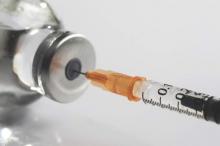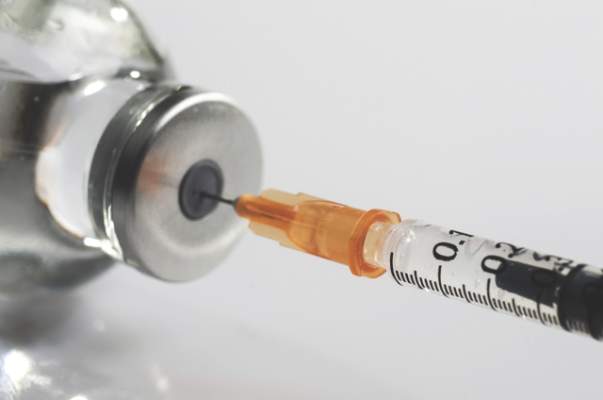User login
The American College of Obstetricians and Gynecologists continues to urge routine vaccination against human papillomavirus for girls and boys and has now added the recently licensed 9-valent HPV vaccine to its recommendation.
The updated policy statement from ACOG’s Committee on Adolescent Health Care and the Immunization Expert Work Group suggest starting vaccination as part of the adolescent immunization platform, but patients who were not vaccinated in the target age can receive the vaccine through age 26 years. The new policy statement adds the 9-valent HPV vaccine (Gardasil 9), which is recommended by the Advisory Committee on Immunization Practices and was licensed by the Food and Drug Administration in December 2014 for girls and boys aged 11-12 years.
“Although obstetrician-gynecologists are not likely to care for many patients in the initial HPV vaccination target group, they have the opportunity to educate mothers about the importance of vaccinating their children at the recommended age,” the committee members wrote in the updated policy statement. “Furthermore, obstetrician-gynecologists and play a critical role in vaccinating adolescent girls and young women during the catch-up period.”
They noted in the policy statement that vaccination is not associated with an earlier onset of sexual activity or increased incidence of sexually transmitted infections.
Vaccination is recommended even if the results of HPV DNA testing are positive. Revaccination is not routinely recommended for individuals who completed the three-dose series with the quadrivalent HPV vaccine or the bivalent HPV vaccine, the committee noted.
HPV vaccination is not recommended during pregnancy, but routine pregnancy testing is not recommended before vaccination. Safety data on inadvertent vaccine administration during pregnancy are “reassuring,” according to ACOG.
For the complete recommendation, visit here.
The American College of Obstetricians and Gynecologists continues to urge routine vaccination against human papillomavirus for girls and boys and has now added the recently licensed 9-valent HPV vaccine to its recommendation.
The updated policy statement from ACOG’s Committee on Adolescent Health Care and the Immunization Expert Work Group suggest starting vaccination as part of the adolescent immunization platform, but patients who were not vaccinated in the target age can receive the vaccine through age 26 years. The new policy statement adds the 9-valent HPV vaccine (Gardasil 9), which is recommended by the Advisory Committee on Immunization Practices and was licensed by the Food and Drug Administration in December 2014 for girls and boys aged 11-12 years.
“Although obstetrician-gynecologists are not likely to care for many patients in the initial HPV vaccination target group, they have the opportunity to educate mothers about the importance of vaccinating their children at the recommended age,” the committee members wrote in the updated policy statement. “Furthermore, obstetrician-gynecologists and play a critical role in vaccinating adolescent girls and young women during the catch-up period.”
They noted in the policy statement that vaccination is not associated with an earlier onset of sexual activity or increased incidence of sexually transmitted infections.
Vaccination is recommended even if the results of HPV DNA testing are positive. Revaccination is not routinely recommended for individuals who completed the three-dose series with the quadrivalent HPV vaccine or the bivalent HPV vaccine, the committee noted.
HPV vaccination is not recommended during pregnancy, but routine pregnancy testing is not recommended before vaccination. Safety data on inadvertent vaccine administration during pregnancy are “reassuring,” according to ACOG.
For the complete recommendation, visit here.
The American College of Obstetricians and Gynecologists continues to urge routine vaccination against human papillomavirus for girls and boys and has now added the recently licensed 9-valent HPV vaccine to its recommendation.
The updated policy statement from ACOG’s Committee on Adolescent Health Care and the Immunization Expert Work Group suggest starting vaccination as part of the adolescent immunization platform, but patients who were not vaccinated in the target age can receive the vaccine through age 26 years. The new policy statement adds the 9-valent HPV vaccine (Gardasil 9), which is recommended by the Advisory Committee on Immunization Practices and was licensed by the Food and Drug Administration in December 2014 for girls and boys aged 11-12 years.
“Although obstetrician-gynecologists are not likely to care for many patients in the initial HPV vaccination target group, they have the opportunity to educate mothers about the importance of vaccinating their children at the recommended age,” the committee members wrote in the updated policy statement. “Furthermore, obstetrician-gynecologists and play a critical role in vaccinating adolescent girls and young women during the catch-up period.”
They noted in the policy statement that vaccination is not associated with an earlier onset of sexual activity or increased incidence of sexually transmitted infections.
Vaccination is recommended even if the results of HPV DNA testing are positive. Revaccination is not routinely recommended for individuals who completed the three-dose series with the quadrivalent HPV vaccine or the bivalent HPV vaccine, the committee noted.
HPV vaccination is not recommended during pregnancy, but routine pregnancy testing is not recommended before vaccination. Safety data on inadvertent vaccine administration during pregnancy are “reassuring,” according to ACOG.
For the complete recommendation, visit here.

